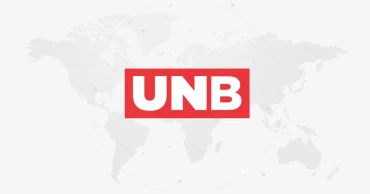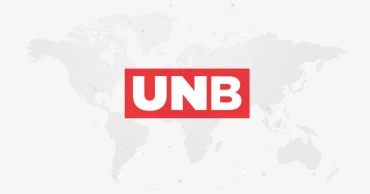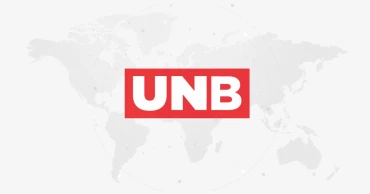Cashless Society
E-payment service launched at Islamic University
The authorities of Islamic University in Kushtia launched an e-payment service for the students of the university with a view to simplifying transactions for them.
Read: 5 injured in BCL factional clash at Islamic University
IU vice-chancellor Professor Shaikh Abdus Salam inaugurated the e-payment service at an e-payment application launching ceremony as chief guest, a press release issued by IU information, publication and public relations office deputy director Rajibul Islam on Saturday (November 25, 2023).
The service will allow the students to pay all sorts of fees, including admission, examination, and residential hall fees, online without having to go to the bank.
Read: Islamic University and Edith Cowan University to undertake joint academic, research activities
Through the e-payment service software of Agrani Bank, students will be able to pay money through bKash, Nagad, and Rocket using their ID. This service will be available to all students from the 2017-18 academic session of the university.
The online banking service will be a convenient and efficient way for students to pay their fees, IU acting registrar HM Ali Hasan said that the e-payment service would save students time and hassle.
Read: Islamic University officials continue work abstention for 2nd day
It would also help to reduce the number of people visiting banks. The service was expected to be well-received by students, he added.
2 years ago
Bangladesh moves towards cashless society: PM Hasina on launching Taka Pay card
Prime Minister Sheikh Hasina on Wednesday (November 01, 2023) said her government seeks to build a cashless society in a bid to reduce corruption, expedite development and ease revenue collection.
“When we will be able to build the cashless society it will curtail corruption. The development of the country will be expedited and the revenue collection will be eased,” she said.
The prime minister said this while inaugurating local currency card ‘Taka Pay’, first of its kind in the country, from her official residence Ganabhaban. She was connected virtually with headquaters of Sonali Bank, City Bank and Brac Bank.
Sheikh Hasina said that as an independent and sovereign country, Bangladesh’s financial system has to be independent and sovereign for reducing dependency on others.
PM Hasina launches Taka Pay, first-ever local currency card, to save costly dollars
She put emphasis on data security of every holder of the newly introduced debit card.
“I hope that the security system of this network will be well-protected. We have to pay special attention to this. Foolproof firewall has to be there,” she said.
She said that this Taka Pay card will be a groundbreaking step for building the cashless society in Bangladesh.
“We will not be dependent on others. We will use our money in our country, we will try to connect this system with otheir countries. We must not be dependent on any single hard currency,” she said.
"Today I'm very happy," said the prime minister terming the own currency card as a landmark step for the country.
She mentioned that the cards which are being used by the people are operated by the foreign companies.
“No more foreign currency spending after introduction of Taka Pay card”," she said.
Hasina spoke about her government’s plan to introduce international transactions through Taka Pay in future.
She also underscored the importance of bringing everyone under banking services towards establishment of a cashless society.
PM Hasina to launch 'Taka Pay' card Tuesday: BB
The premier said every citizen of the country should be brought under the banking service.
Directing the Bangladesh Bank to focus on establishing good governance in the banking sector, the PM said, the role of central bank is very important in establishing a cashless society.
“So, special attention should be given to ensure that the service in the banking sector is more fair alongside good governance,” she added.
PM Hasina asked the officials concerned to provide training and up to date information to the people so that they can use this Taka Pay card easily without any hassle in their daily payment.
The card is be issued by state-owned Sonali Bank and privately-owned City Bank and BRAC Bank in collaboration with the central bank.
'Taka Pay' will provide the same service nationally through the use of 'The National Payment Switch of Bangladesh', an electronic payment platform operated by the BB.
Election will be on time, BNP can’t stop it, says PM Hasina at press conference
2 years ago
PM Hasina launches Taka Pay, first-ever local currency card, to save costly dollars
Prime Minister Sheikh Hasina on Wednesday (November 01, 2023) launched local currency card Taka Pay to reduce dependency on international card schemes like Visa and Mastercard and save much-needed US dollars.
Bangladesh Bank introduced the card, first of its kind in the country.
PM Hasina inaugurated the card from her official residence Ganabhaban. She was connected virtually with the headquarters of state-owned Sonali Bank, private City Bank and Brac Bank.
The three banks have been given responsibility to issue the Taka Pay card in collaboration with the central bank.
'Taka Pay' will provide the same service nationally through the use of 'The National Payment Switch of Bangladesh', an electronic payment platform operated by the BB.
Initially, the card can be used within the country. Later the central bank will introduce Taka-Rupee card which can be used for shopping in neighbouring India.
Electronic transfer of taka is done through Visa and MasterCard payment networks of business institutions including banks and other financial institutions.
These entities offer branded payment processing services for credit, debit, and prepaid cards. Domestic card 'Taka Pay' will provide the same service, the BB sources said.
It can be used abroad once foreign banks and institutions partner with the platform. It will reduce the cost of foreign exchange. Because foreign companies have to spend a lot of money on service charges.
From the beginning, this card can be used at all ATMs, points of sales and online platforms in the country.
PM Hasina to launch 'Taka Pay' card Tuesday: BB
Initially it will be used as a debit card but in the future Taka Pay credit card will also come.
Magnetic strip is used for security of this card. But now the new EMV technology with added security has been introduced in all bank cards. Gradually Taka Pay card will also be introduced with EMV technology.
Paris-based consultancy Fime developed the card.
Bangladesh’s neighboring countries also have their currency cards. India has card 'Rupee', Pakistan 'Pakpay', Sri Lanka 'Lonkapay'. Saudi Arabia has 'Mada'.
Election will be on time, BNP can’t stop it, says PM Hasina at press conference
At the outset, a video documentary on the Taka Pay was screened.
Two freedom fighter customers of Sonali Bank withdrew money from City Bank's ATM using Taka Pay Card.
Central bank governor Abdur Rauf Talukder was present among others at Ganabhaban.
Prime Minister's Principal Secretary M Tofazzel Hossain Miah moderated the function, while BB Governor Abdur Rouf Talukder delivered welcome address. BB Executive Director Mezbaul Haque presented different aspects of the national card scheme “TakaPay”.Sonali Bank Managing Director Afzal Karim, Brac Bank Managing Director Selim RF Hossain and City Bank Managing Director Mashrur Arefin at their offices demonstrated the usage of TakaPay card, online payment and withdrawal of money from ATM where the users received the services.
PM Hasina describes as successful her visit to Belgium for Global Gateway Forum
2 years ago
Digital Currency: Benefits and Risks of the Cashless Economy in Bangladesh
The modern-day monetary transaction has its roots in the barter system of ancient times. Over the course of thousands of years, physical money has become an integral part of our daily life – until the idea of replacing cash with digital currency was propagated.
The idea of replacing cash has been around for a long with cheques and bonds. However, the true idea of replacing cash has not been possible to implement up until recently with the advent of Mobile Financial Services and cryptocurrencies. Let's take a look at how they are impacting the economy of Bangladesh and what are the prospects and risks of a cashless society.
What is Digital Currency?
Digital currency is a form of currency that is available only in electronic form. That is, the transactions will take place virtually without any physical interaction. The idea of digital currency was popularized in 2009 after the initiation of Bitcoin by a certain unidentified individual named Satoshi Nakamoto. Harnessing the blockchain mechanism, Bitcoin slowly gained traction and today it is one of the leading cryptocurrencies in the world.
The individual Bitcoins and other cryptocurrencies like Ethereum are stored in an e-wallet from which transactions can be made digitally. Currently, more and more organizations are opening up to crypto transactions as it is secure and an effective monetary system against cash-based transactions.
Read: Graphic Designer Salaries: How Much Can You Earn from Graphic Design?
State of Digital Currency in Bangladesh
However, the popularity of cryptocurrency is also a headache for central regulatory authorities like Bangladesh Bank. Cryptocurrencies are decentralized monetary systems meaning they are not regulated by any central bank or government. The valuation of cryptocurrency is solely dependent on the stock market fluctuations. The lack of control over the system makes many central Banks skeptical about its usage as well as long-term implication in the economy. As a result, Bangladesh does not allow the mining or transaction of any form of cryptocurrency.
However, with the increasing popularity and adoption of cryptocurrency, we are only putting ourself at disadvantage for not making use of the potential posed by the system. Currently, the market capitalization of Bitcoin alone stands at over a trillion-dollar, several times more than the GDP of Bangladesh. It is to be noted that a large population of Bangladesh is still unbanked. And without the inclusion of people in the banking system, it's nearly impossible to move forward with the idea of a cashless society. So what is the answer of Bangladesh to this? How are we trying to keep with the increasing trend of digital transactions?
Read: Online Business: How to Get Started from Home?
The answer is Mobile Financial Service. With over 47 million internet users and 165 million mobile subscribers, Bangladesh is rapidly moving into the age of the internet and digitalization. Leading banks tapped into this opportunity to introduce Mobile Financial Services like Bkash, Nagad, and Rocket.
The platforms aim to bring micro banking to the unbanked and make a transaction to various sectors a matter of a few taps on phone. Almost all the leading business including government channels now accepts payments through these MFS which is complementing the idea of a digital currency to some degree.
Read Small Business Ideas for F-commerce Startups in Bangladesh during Pandemic
4 years ago






